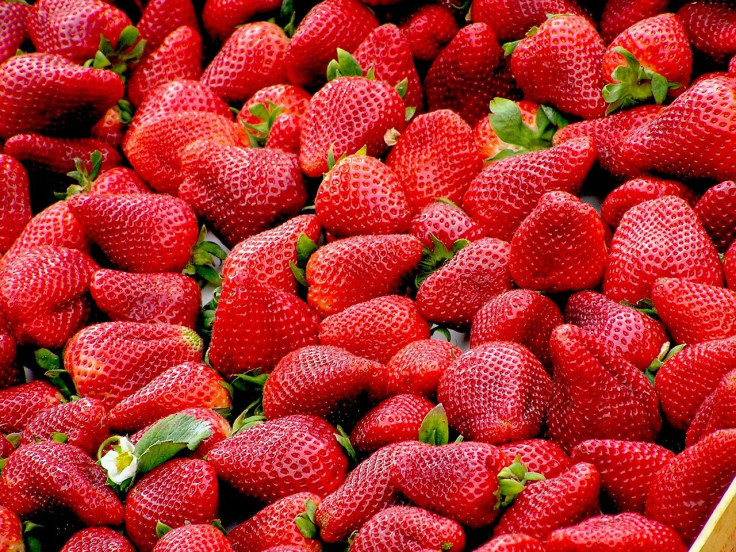Which Fruits, Vegetables Have Highest Pesticide Levels? List Of 48 Kinds Of Produce; Strawberries Are #1

Worried about pesticide levels in your fruit and vegetables? Strawberries contain the most pesticides, while sweet corn and avocados are nearly clean, according to an annual report from the Environmental Working Group (EWG). In the EWG’s “2017 Shopper’s Guide to Pesticides in Produce,” 48 types of conventionally grown fruit and vegetables were tested for synthetic chemicals.
Read: Pesticides May Increase Risk For Parkinson’s Disease By Blocking Key Protein
Despite washing and even peeling some of the more than 36,000 samples, there was still a total of 178 pesticides found among the produce analyzed by the United States Department of Agriculture.
Foods that contained the highest level of pesticides, referred to as the "dirty dozen," in order were: strawberries, spinach, nectarines, apples, peaches, celery, grapes, pears, cherries, tomatoes, sweet bell peppers, and potatoes. They all tested positive for a number of different pesticides and had a higher concentration of the synthetic chemicals than other produce.
Strawberries contained at least 20 pesticides.
Produce with the lowest pesticide residue, in order were: sweet corn, avocados, pineapples, cabbage, onion, frozen sweet peas, papayas, asparagus, mangoes, eggplant, honeydew melon, kiwis, cantaloupe, cauliflower, and grapefruit.
Only 1 percent of the sweet corn and avocado samples showed any detectable pesticides.
If you’re curious how the rest of the produce ranked, check out the full list of rankings here.
So, what do these rankings mean? Should you avoid the conventional produce on the “dirty dozen” list? The Alliance for Food and Farming, a non-profit organization which represents organic and conventional farmers of fruits and vegetables, says consumers need not worry. They say the information the EWG presents is misleading and their rankings use no scientific process, according to a press release.
Whether you are buying organic or conventional produce, it’s important to handle your food safely. For the healthiest practice, the Centers for Disease Control and Prevention recommends you wash your fruits and vegetables (unless they’re labeled “prewashed”), keep them cold, and separate them from items like raw meat, poultry, and seafood.
See also: Aerial Pesticide Spraying Possibly Linked To Autism, But Some Scientists Wary Of Connection



























